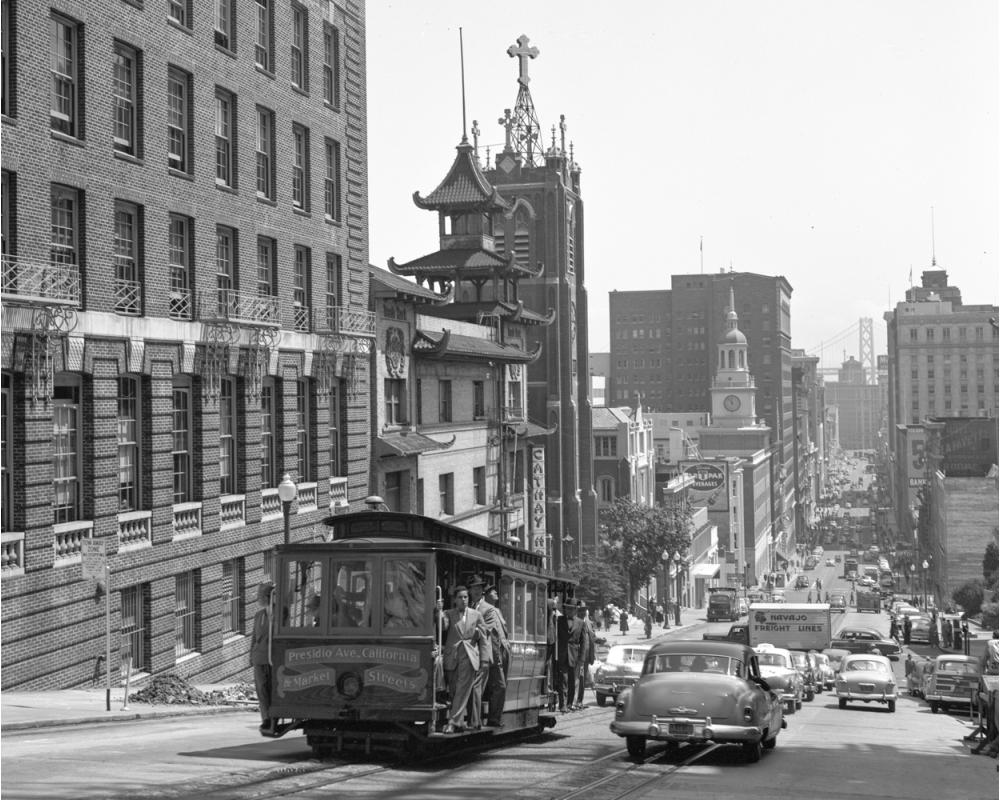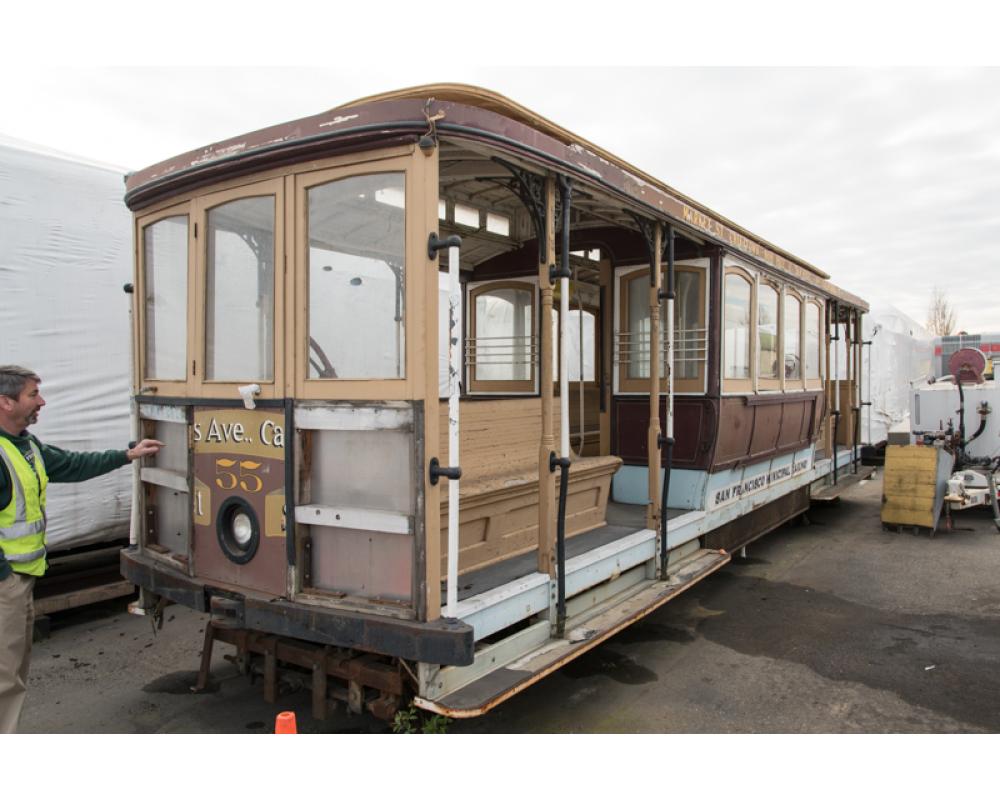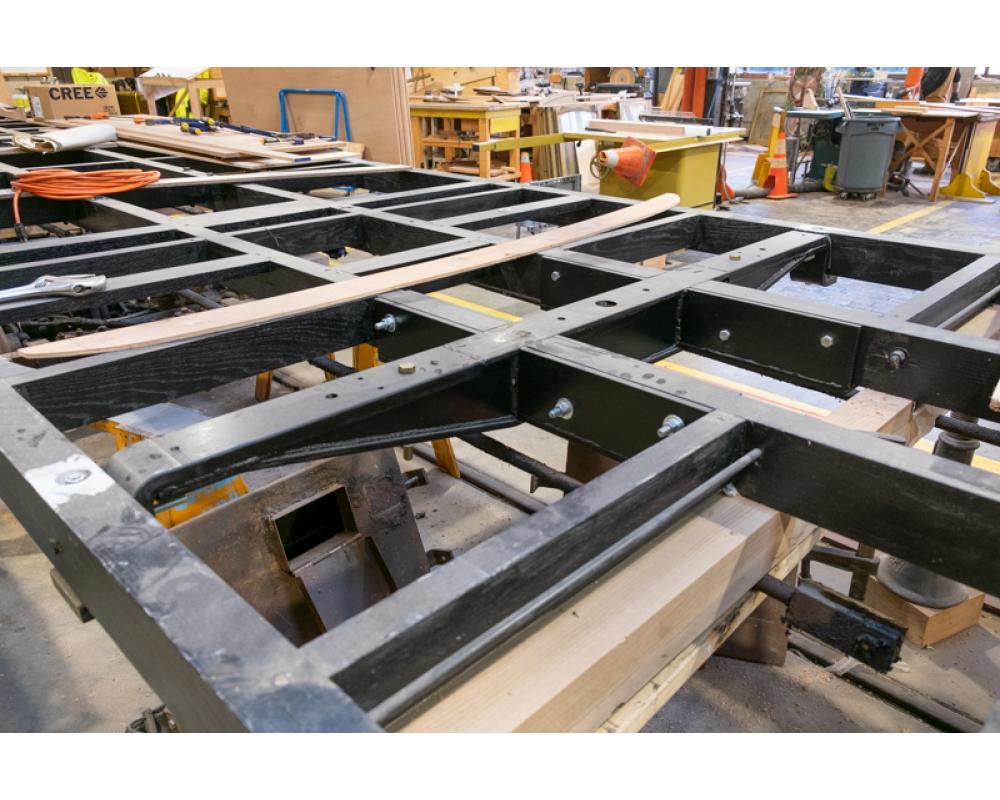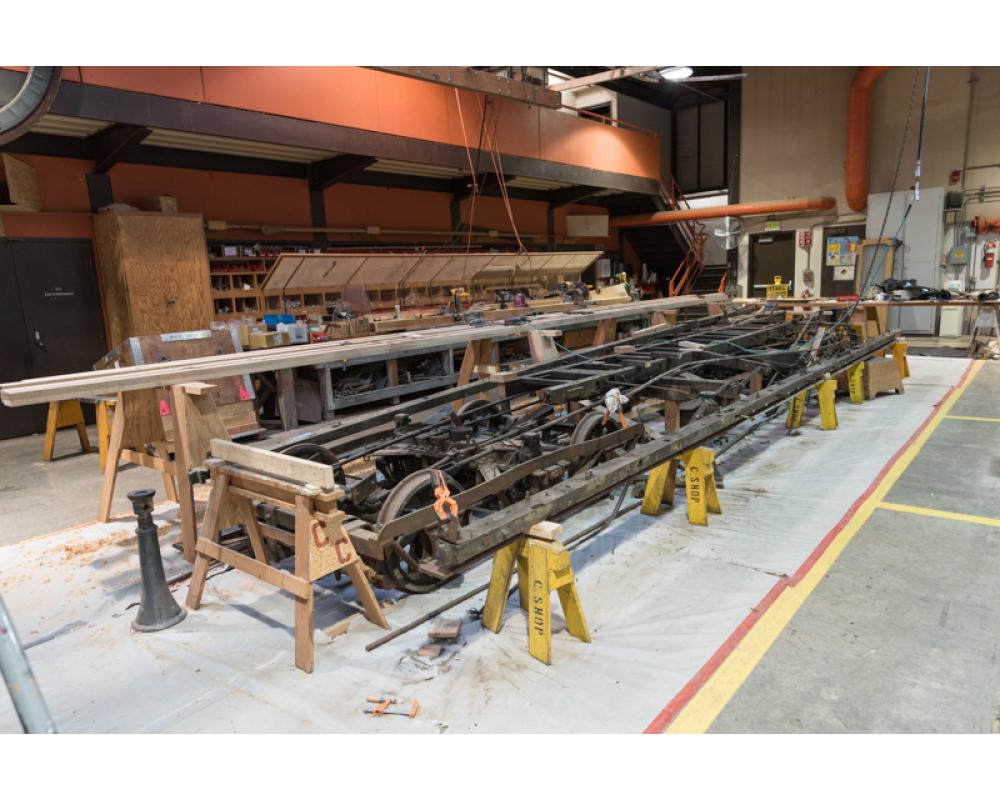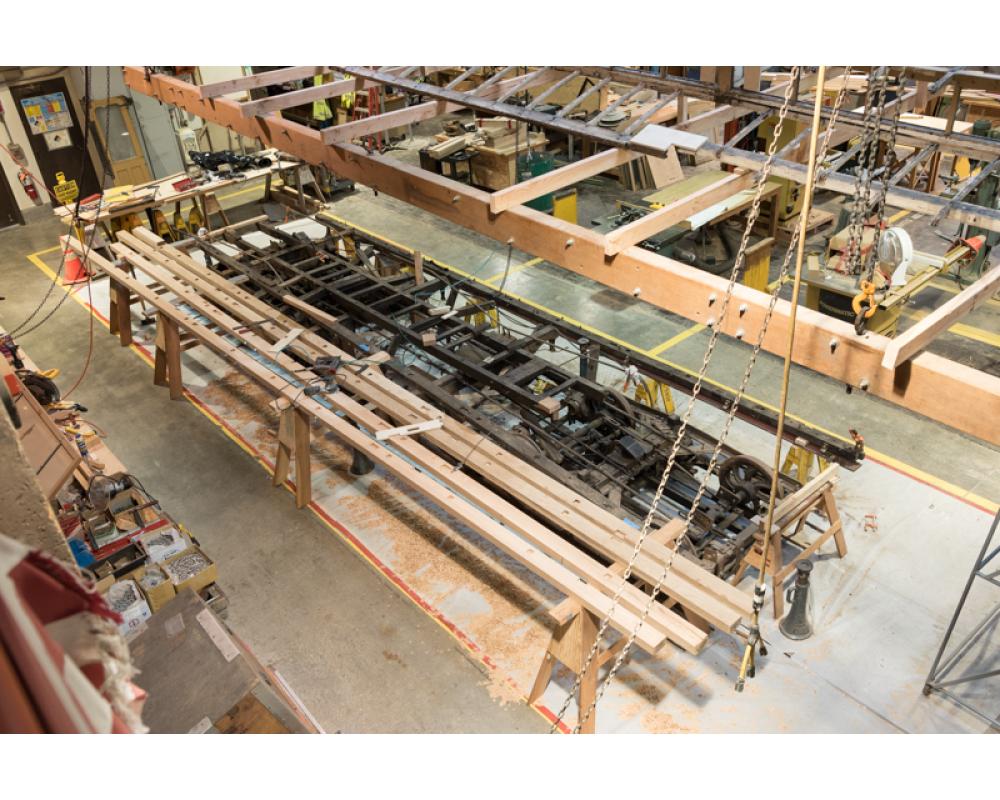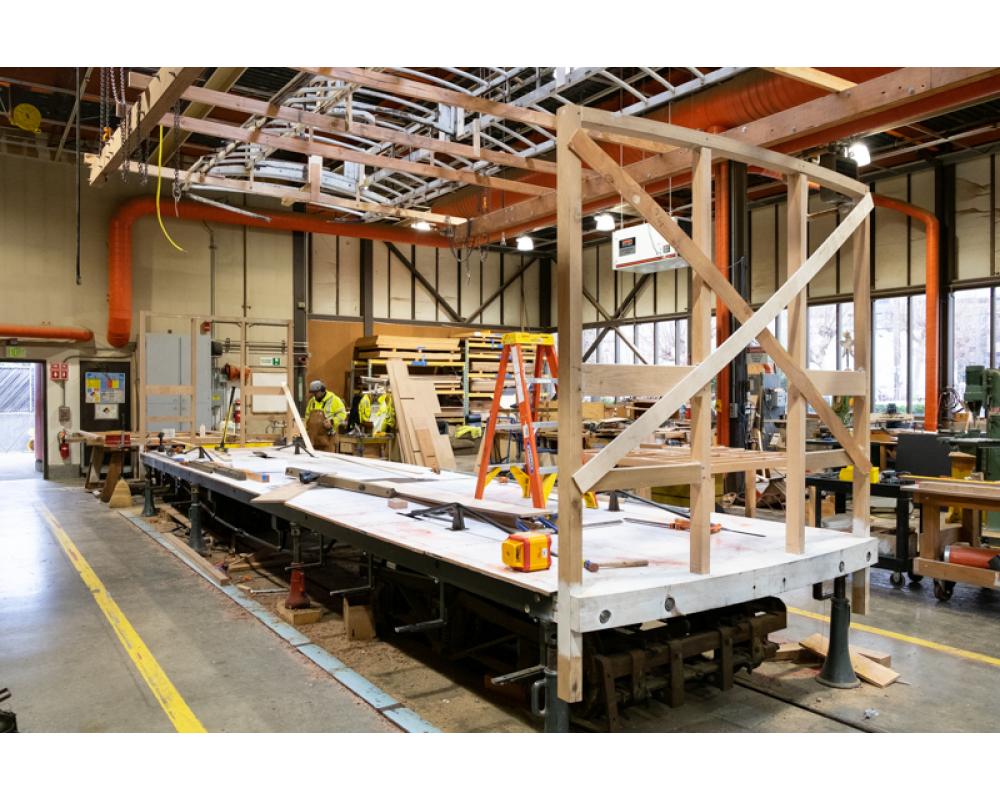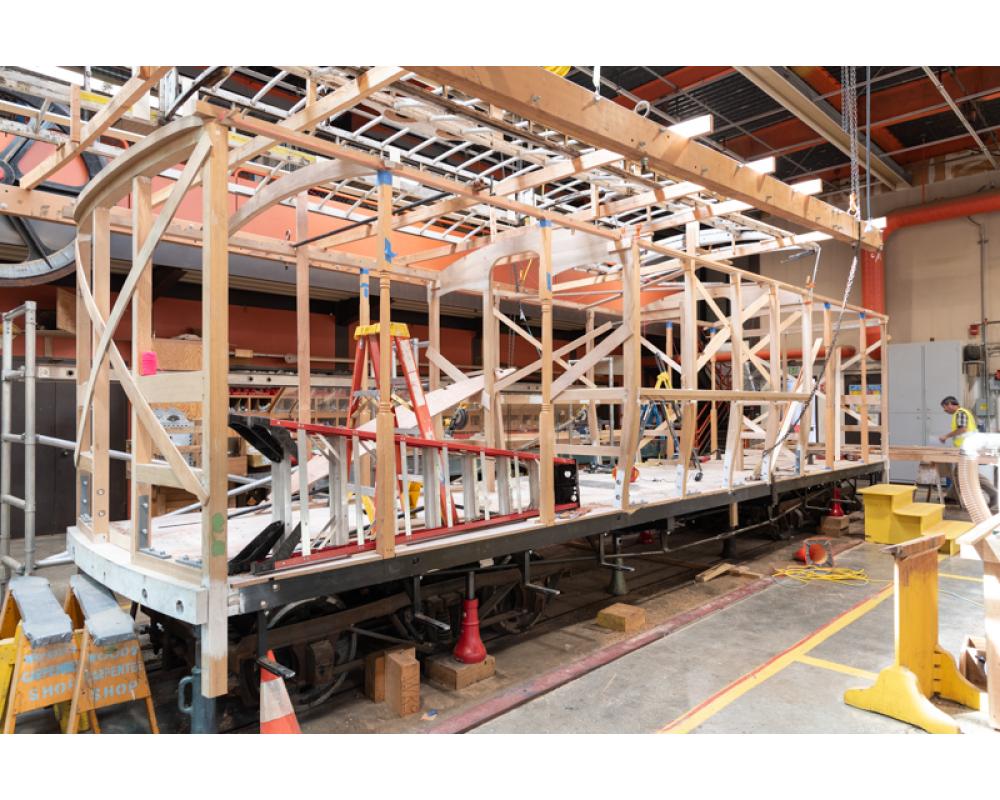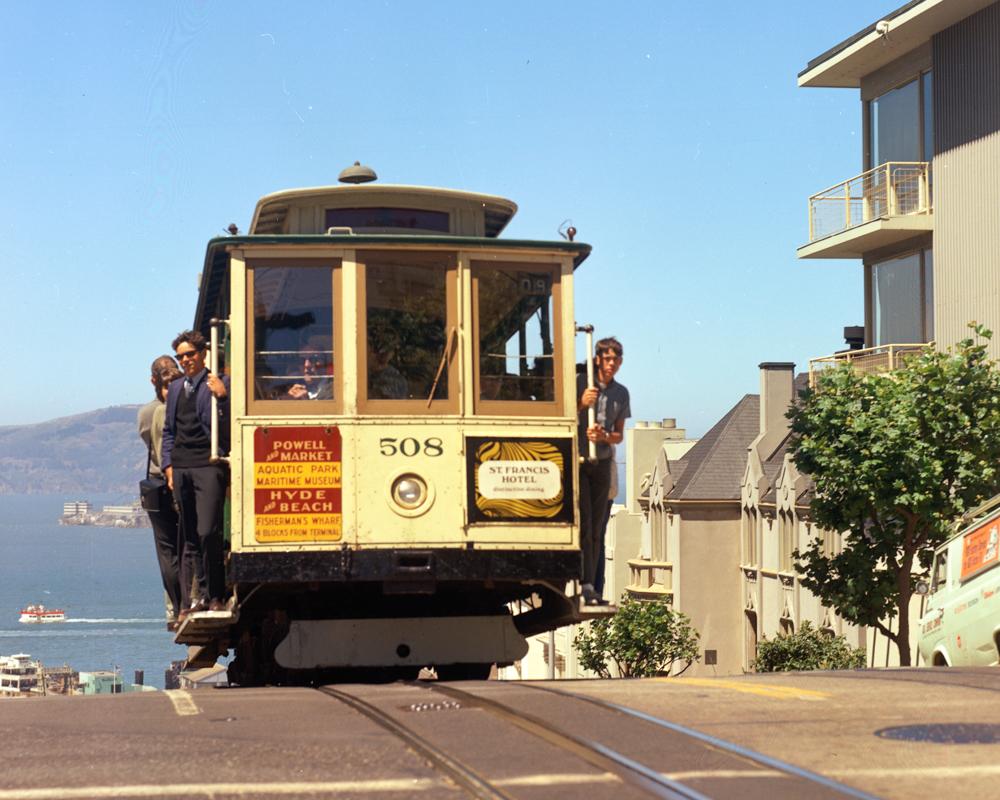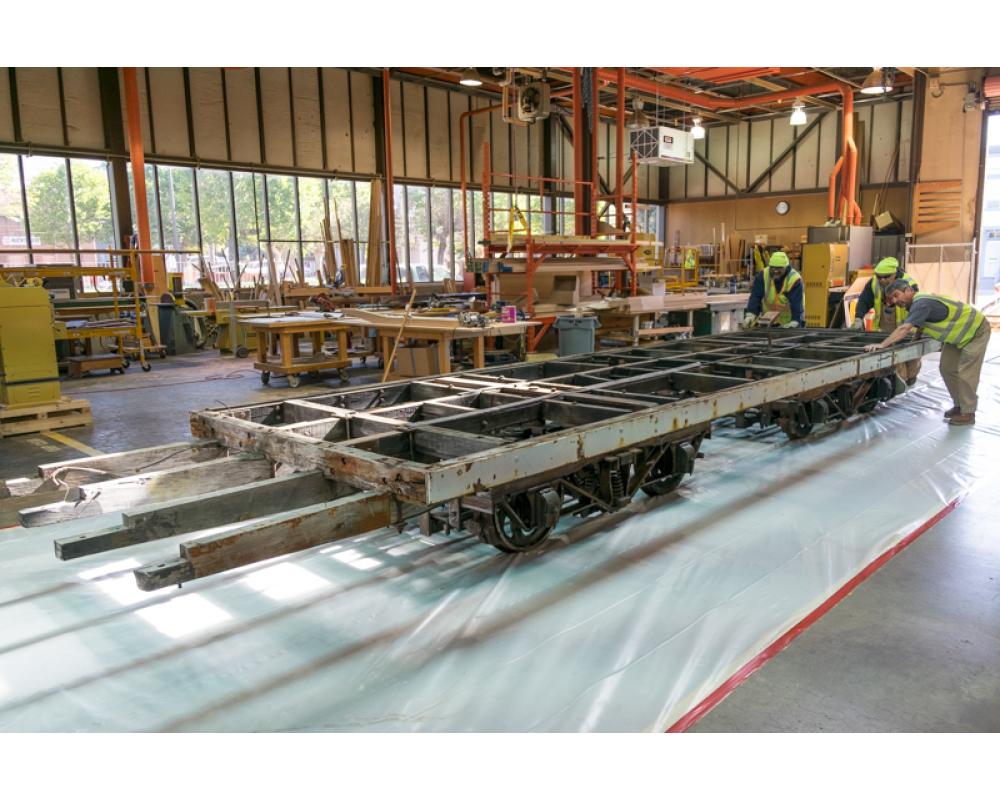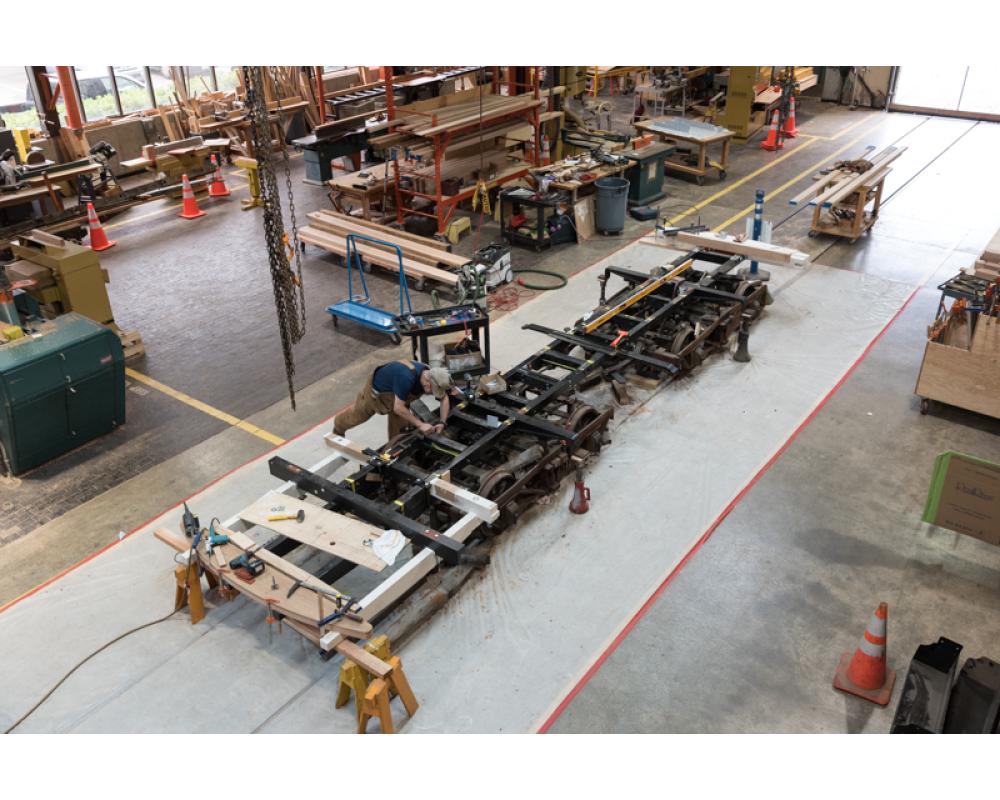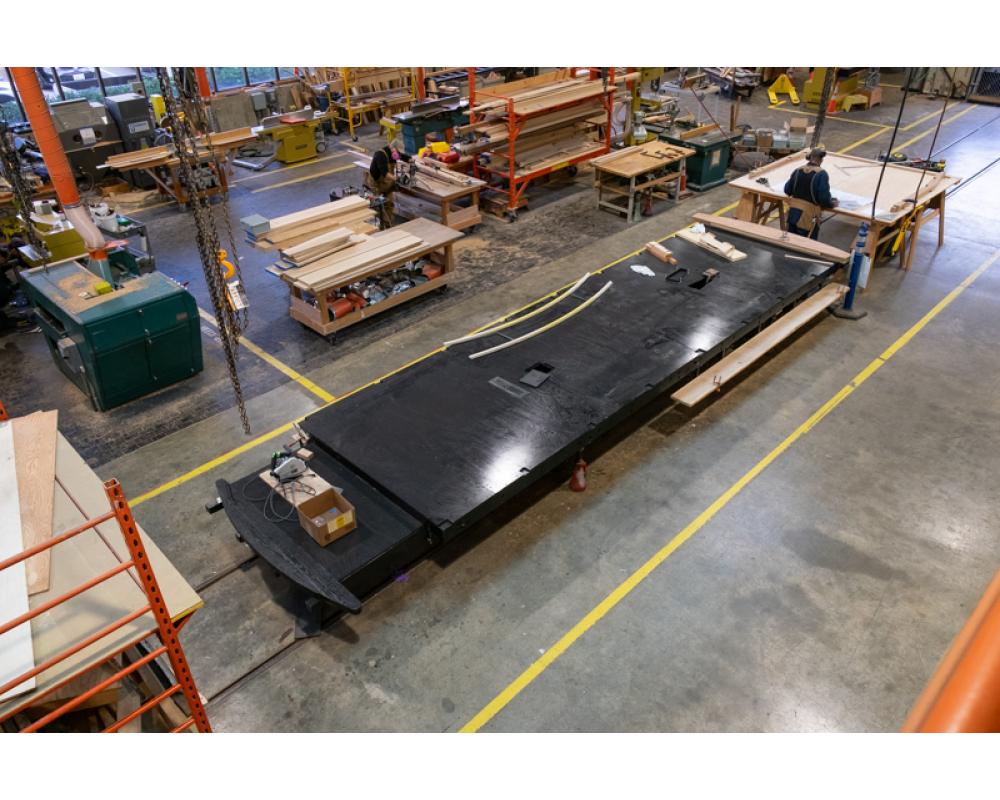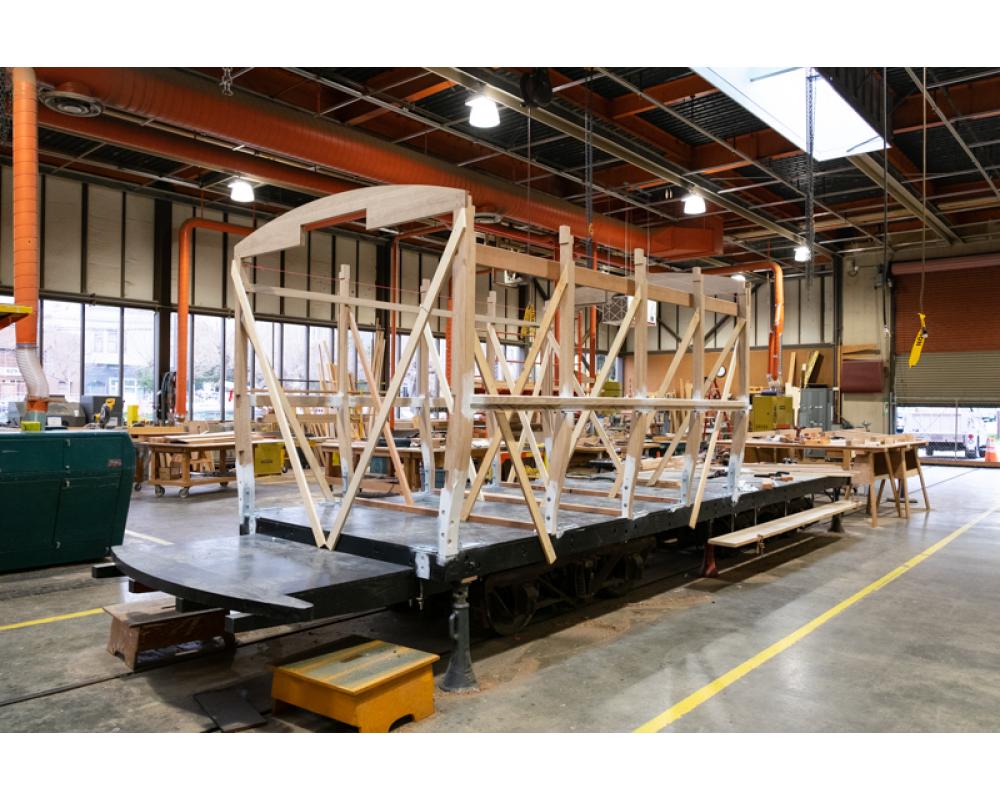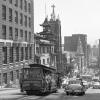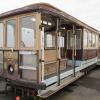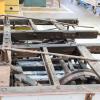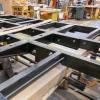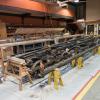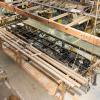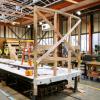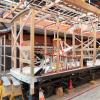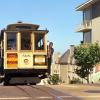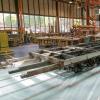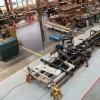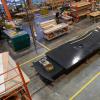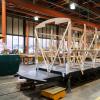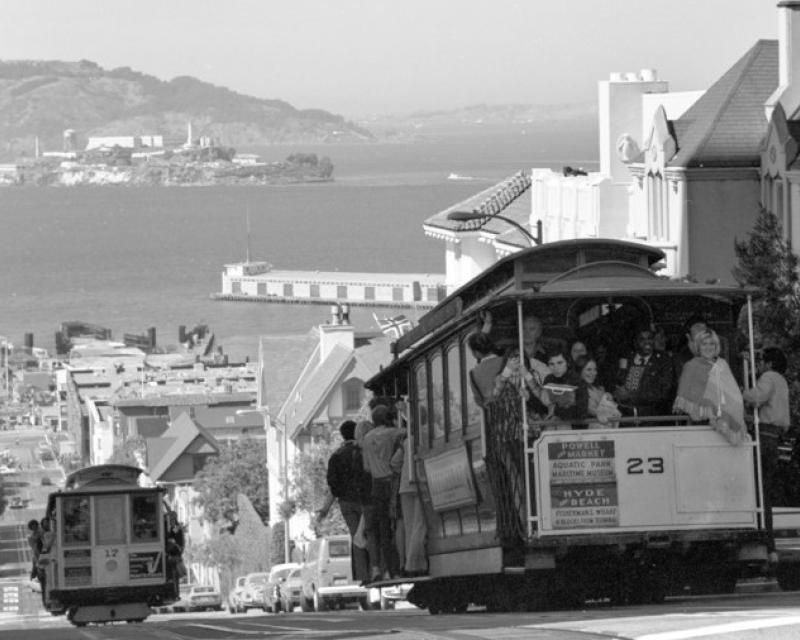To some, San Francisco's Cable Cars are little more than an obligatory tourist attraction to see while in town. But to the Operators, Mechanics, Machinists and Carpenters who live and breathe Cable Cars on a daily basis, they are a unique and timeless piece of our city's history that takes a lot of effort to keep running on the streets of our city.
One part of maintaining our fleet of National Register Landmarks is the process to rebuild cars once they are worn out from years of service. Here's a sneak peek inside that process for two members of the Cable Car fleet currently undergoing restoration: Powell Street Car 8 and California Street Car 55.
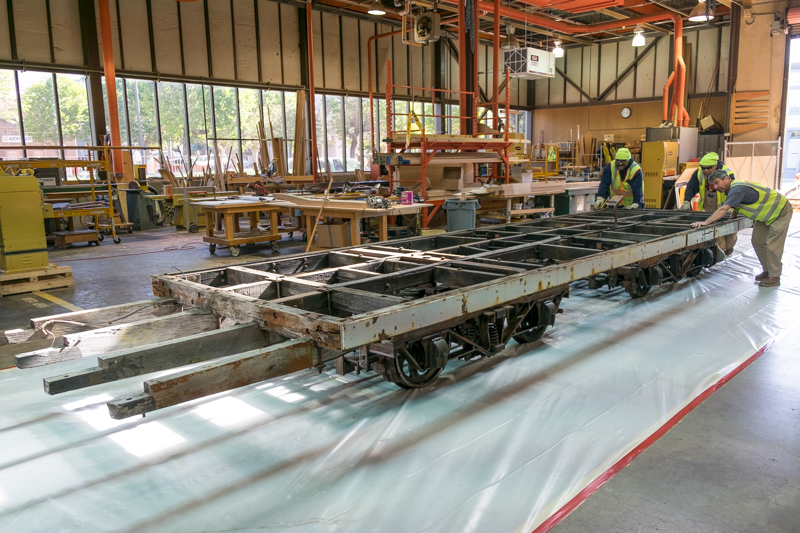
Muni's Track Department delivered Car 8 to the shop using a specially-built trailer equipped with rails and a moving ramp to load and unload rail vehicles.
Starting literally from the ground up, Cable Car 8 arrived at the shop as nothing more than a beat-up frame on a couple of rusty trucks.
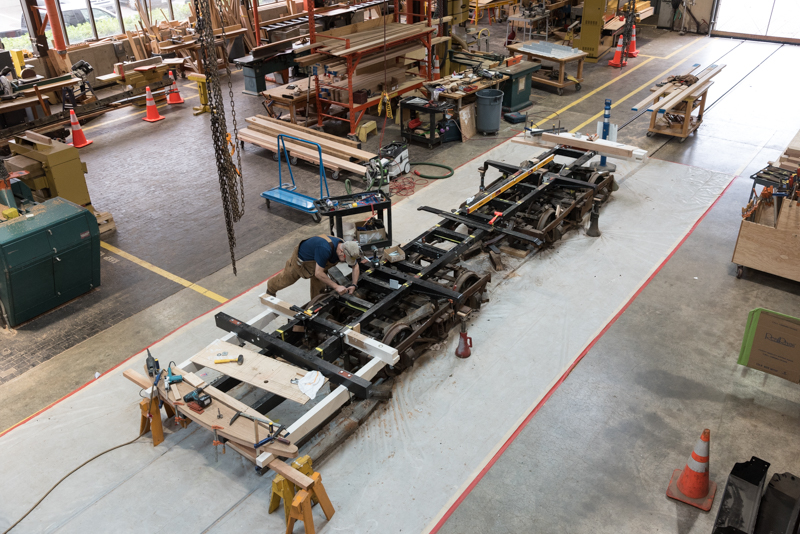
Right away, carpenters set about assessing the condition of the frame on Car 8 to see what was salvageable and what needed to be replaced.
Much of the wood on Car 8 was rotted from age and exposure, so the entire frame was reconstructed. In addition to all new wooden pieces, many of the metal brackets and plates that help tie the framework together were also replaced with custom-made parts from the Special Machine Shop.
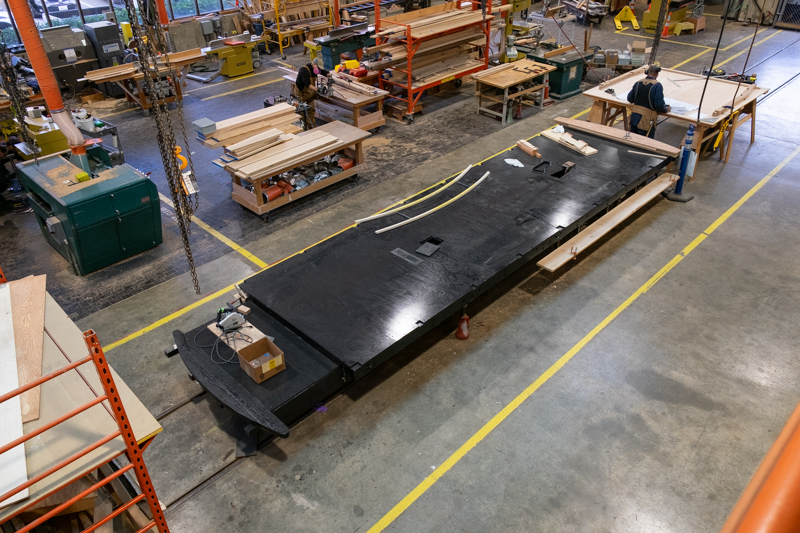
Once the frame was complete, the floor of Car 8 was "decked" out with marine-grade plywood and coats of sealant and paint to ensure maximum durability against the abuses of the road ahead.
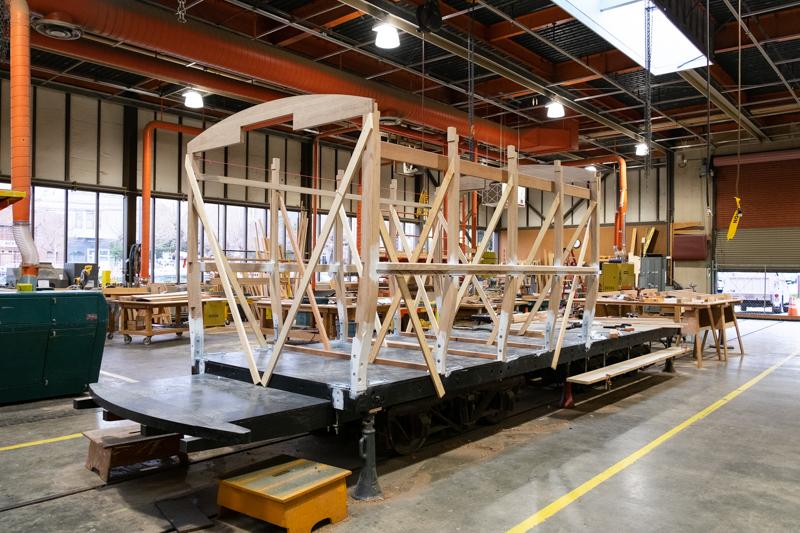
Bracing holds the upright pieces of the body of Car 8 in place while more pieces are built into the structure.
With chassis construction and decking complete, Carpenters set about fitting the framing members for the body of the car. Unlike building a structure with standardized shapes and sizes of lumber, cable cars have very unique shapes that must be made by hand through shaping and compositing of multiple pieces of wood and then painstakingly joined together.
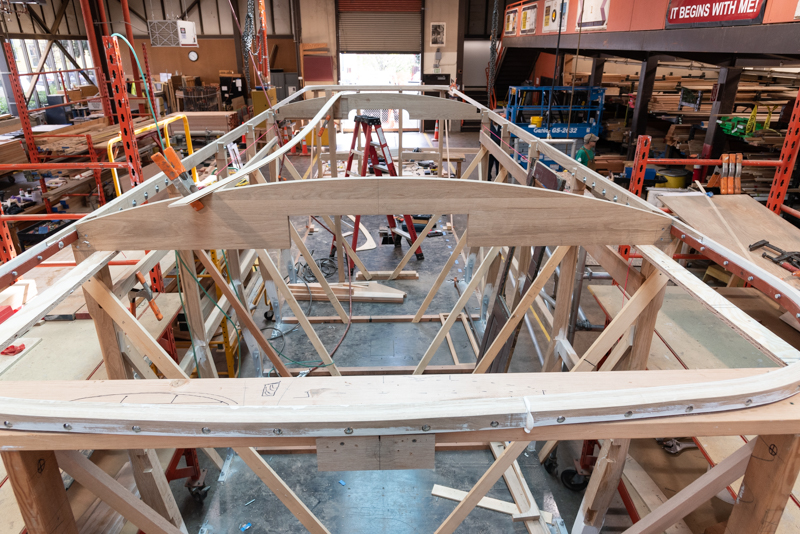
The roof framing of Cable Car 8 takes shape, with ends and center bulkheads installed as well as the curved laminate rim piece that defines the outer edge of the roof.
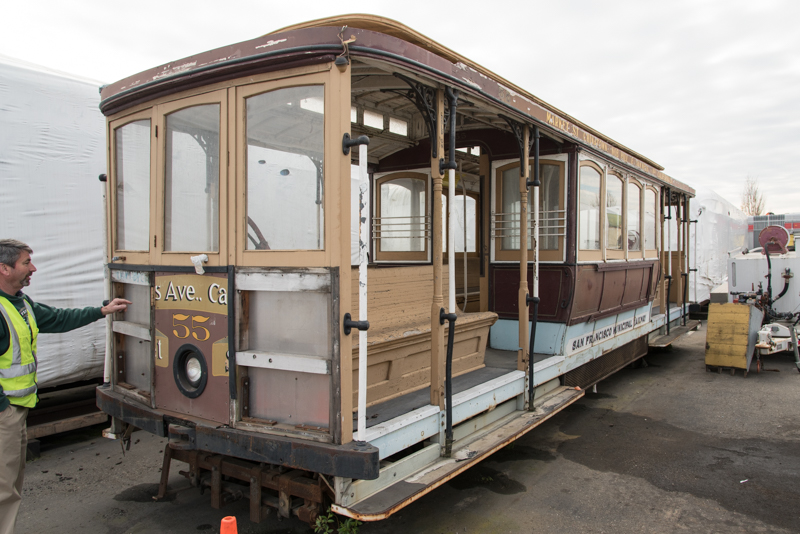
A photo of Car 55 as it sat in a storage yard before restoration work began. Interestingly, it was originally numbered 8 and re-numbered 55 in the 1950s.
Car 55 arrived in more complete condition as compared to Car 8. However, due to serious structural damage to the chassis and truck bolster (a heavy metal structure that holds the car's wheel trucks in place), a comprehensive overhaul was necessary.
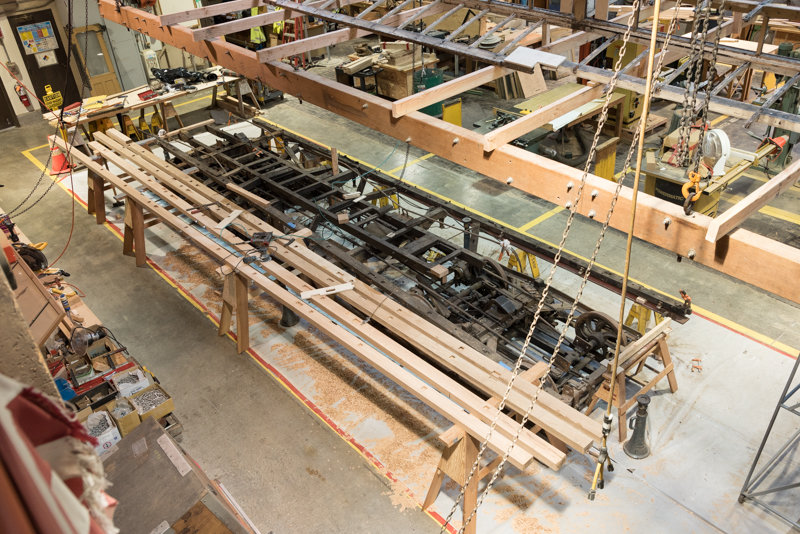
After lifting the roof frame off and disassembling the entire car body, work was set about tearing down the chassis to repair and replace all beams, brackets, and braces. Note the stack of new longitudinal beams to the left of the partially disassembled chassis.
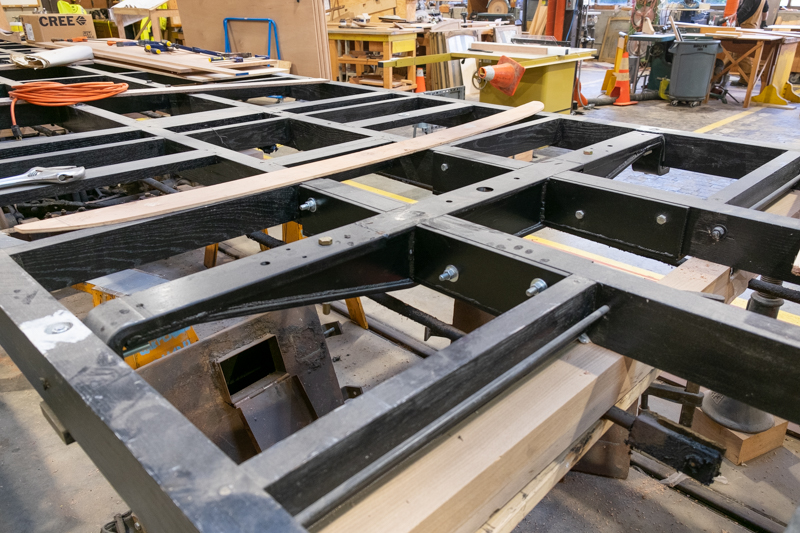
Car 55 has truly been a team effort, pooling the expertise of cable car gurus in multiple departments to solve issues big and small.
Some months into the reconstruction, a new truck bolster was made from scratch by the excellent machinists and welders at the Special Machine Shop and integrated into the new wooden framework. The bolster was followed shortly by new "tension rods", long heavy steel bars used to put tension on the chassis and provide extra strength and flexibility for the car.
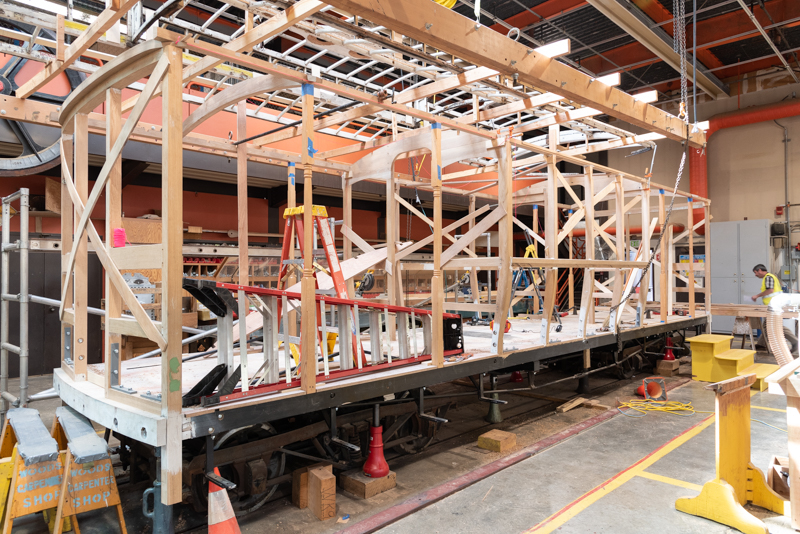
Many of the framing parts were made while the Carpentry Shop awaited repairs and parts on the bolster and tension rods, allowing for the framing work to progress relatively quickly.
With the foundational pieces of the puzzle done, work progressed to complete the chassis, lay down floor sheathing, and move on to the framework for the body of the car. Today, Car 55 is really taking shape and carpenters are working on building out parts like the frame for the clerestory windows on the roof.
Both of these cars are still being worked and will require a lot of fine detail work to bring them back to life. Stay tuned for future updates to the work here and on Instagram. Want to see more photos? Check out the gallery below and at the SFMTA Photo Archive online.
